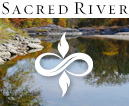 |
|
The Three Pillars of Stewardship | |
|
What’s New
|
Being a member of a local O.T.O. body is not quite the same thing as being an initiate of the Order as a whole. The initiatory Oaths we take tend to come in two categories: those regarding the self and those regarding other O.T.O. initiates. Those in the personal category are largely the business of the individual. Those in the second are applied in a universal way, and mostly address member-to-member interactions. What does it mean to be a meaningful and responsible local body member? This is a special association between an initiate and a larger community, and involves principles beyond simple one-to-one relationships. These principles address what our Man of Earth Oaths do not: what is one’s relationship with a specific community—the local body—without regard to any given individual (i.e. the body master)? The answer lies in the practice of Stewardship, that noble station wherein members share mutual responsibility for the maintenance of the community. For any local body to flourish, all its members must work to ensure its well-being, and this is accomplished through dedication to the Three Pillars of Stewardship. THE THREE PILLARS OF STEWARDSHIPMaterial Sustenance Local bodies of O.T.O. are corporeal by nature. They are not symbolic or abstract, but consist of a true community of actual men and women doing the Great Work. The basic requirements of O.T.O.—such as administering initiations and regular celebrations of Liber XV—require physical components, such as furniture, weapons, props, and a space to contain them. Just as Malkuth is the base of the Tree of Life, so must the material requirements of the local body be met before the Higher Work can be accomplished. The first Pillar reflects our mutual responsibility for ensuring that the material foundation of the community is healthy and secure. This requires three things: energy, time, and money. Such resources provided to the local body are not payment for services, but represent an investment into the community. Not everyone can give equally in all three resources, but each and every member should give what they can in each. For local bodies that have a dues structure, by paying them in a timely manner, as well as making voluntary donations and supporting fundraising events, you join your fellow Stewards in Sustaining a vibrant and healthy local body. As it is written in Liber CI: “This is to take precedence of all other calls upon the purse.” For those who can give more, it is incumbent upon them to make what contributions they can to help provide a functional and sustaining physical foundation for our Rites and Celebrations. Service to Community The principle of Service is a central one within O.T.O. In Liber CXCIV it says, “The Man of Earth takes no share in the Government of the Order; for he is not yet called upon to give his life to it in service; and with us Government is Service, and nothing else.” However, every Man of Earth is encouraged to work towards and assume local leadership positions. They can be administrative (e.g. Secretary), creative, or ad hoc (producing theatre, classes, or fundraisers). Service can also be assumed within our Rites and Celebrations, most notably as an officer in the Gnostic Mass or within our Initiation ceremonies. Both paths are of equal importance to the functioning of any local body. It is incumbent upon all members to seek such local avenues of Service of which they are capable. Fraternal Support The O.T.O. is a social Order in that it is designed for initiates to manifest their Wills within a group of like-minded and oath-bound brothers and sisters. Fraternity consists of working to support one’s siblings in the Way of their Going. This includes supporting the community as a whole through such actions as donating labor (e.g. work parties, building or repairing equipment, temple cleaning, et cetera) or regularly attending local body events (such as business meetings, parties, classes, rituals, et cetera). It can also mean supporting individual members, most importantly by attending initiations and ecclesiastical celebrations, but also by assisting members when they are in need, supporting their local body projects, or welcoming new members into the social community. As it says in Liber CI, the brethren “shall respond heartily to every summons of the Lodge or Chapter to which they may belong, not lightly making excuse” and that we “should use every opportunity of assisting each other in [our] tastes, businesses, or professions” and lastly that we “may expect the warmest co-operation in [our] pleasures and amusements from other members of the Order.” No member has the duty to support every brother or sister in all situations. Nevertheless, Stewardship requires that members work to embrace the social principals of cordiality, integrity, and community spirit. Although these are Three Pillars, they are, in fact, One; for every Pillar is a reflection of the others. Is not donating money both fraternal and a service? Is not serving in a post of responsibility both a sacrifice of time as well as a way to support one’s brothers and sisters? And is not supporting one’s brethren not a giving of energy and a benefit to the community? Aye, aye, and aye! By seeing to these principles, each and every one of us, we shall bring our local bodies to great glory and, thus, give high honor to our Holy Order.
|
